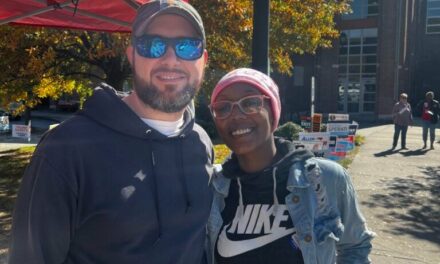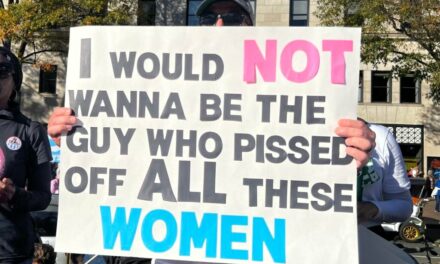We support our Publishers and Content Creators. You can view this story on their website by CLICKING HERE.
Voters in eight states on Tuesday considered constitutional amendments to ban noncitizens from voting.
Measures were on the ballot in Idaho, Iowa, Kentucky, Missouri, North Carolina, Oklahoma, South Carolina, and Wisconsin.
Bloomberg and The Associated Press reported shortly before 9 p.m. that Amendment 1 had passed in Kentucky.
If this year follows past trends, all of the other measures are expected to pass overwhelmingly.
In 2022, state constitutional amendments requiring citizenship to vote were approved by 73% of voters in Louisiana and by 77% in Ohio, according to Ballotpedia. In 2020, similar constitutional amendments were approved by 79% of voters in Florida; 77% in Alabama; and 62% even in Colorado, a blue state. In 2018, 65% of voters in North Dakota approved such an amendment.
Census data shows that 21.7 million noncitizens lived in the United States as of 2022. Eighteen states and the District of Columbia issue driver’s licenses to illegal immigrants, according to the Only Citizens Vote Coalition. Also, every noncitizen who is legally authorized to work in the U.S. is eligible to get a Social Security number.
No state constitutions explicitly allow foreign nationals to vote. By law, the District of Columbia and local jurisdictions in the states of California, Illinois, Maryland, and Vermont allow non-U.S. citizens to vote in local elections, but not in statewide or federal elections.
This approach, however, requires election officials to keep separate lists of registered voters. Advocates of election integrity argue that keeping separate lists can be difficult, and that noncitizen voters could slip through the cracks for state and federal elections.
In July, the Republican-controlled House passed the Safeguard American Voter Eligibility Act, or the SAVE Act, which would require that states obtain documentary proof of U.S. citizenship before he or she is allowed to register to vote. The bill would amend the 1993 National Voter Registration Act, known as the “motor voter law.”

 Conservative
Conservative  Search
Search Trending
Trending Current News
Current News 





